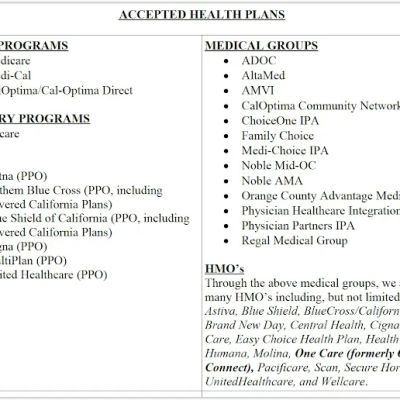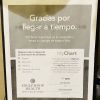- why-cardiovascular-fitness-matters - Why Cardiovascular Fitness Matters for Long-Term Heart Health
- understanding-the-types-of-heart-strengthening-exercises - Understanding the Types of Heart-Strengthening Exercises
- how-to-build-a-sustainable-routine - How to Build a Sustainable Cardiovascular Exercise Routine
- case-study-turning-around-heart-health-at-50 - Case Study: Turning Around Heart Health at 50
- tracking-progress-and-adapting-your-plan - Tracking Progress and Adapting Your Plan
- the-role-of-nutrition-and-recovery - The Role of Nutrition and Recovery in Cardiovascular Fitness
- how-heartcare-hub-supports-your-journey - How HeartCare Hub Supports Your Heart Fitness Journey
1. Why Cardiovascular Fitness Matters for Long-Term Heart Health
Cardiovascular fitness isn’t just about stamina—it’s one of the most important indicators of your heart’s long-term health. Regular exercise strengthens your heart muscle, improves blood flow, regulates blood pressure, and helps maintain healthy cholesterol levels. In short, movement is medicine.
According to the American Heart Association, people who engage in moderate to vigorous aerobic exercise 4–5 times a week significantly reduce their risk of heart disease. Yet, many Americans still underestimate the power of consistency in physical activity.

2. Understanding the Types of Heart-Strengthening Exercises
When we say “cardio,” most people picture running—but that’s just one option. What matters most is elevating your heart rate and keeping it there consistently. The variety of heart-friendly activities means there’s something for everyone.
Atlanta Heart Specialists
atlanta heart specialists
4375 Johns Creek Pkwy #350, Suwanee, GA 30024, USA

2.1 Aerobic Exercise
Activities like brisk walking, cycling, swimming, rowing, and dancing fall under this category. These exercises build endurance and help your heart pump more efficiently over time.
2.2 High-Intensity Interval Training (HIIT)
HIIT involves short bursts of intense activity followed by periods of rest. It’s incredibly effective for heart health, especially for those short on time. Even 15 minutes can make a difference if done right.
2.3 Strength Training with Cardiovascular Focus
Lifting weights with shorter rest periods or performing compound movements (like kettlebell swings) can also improve cardiovascular endurance while building muscular strength.
3. How to Build a Sustainable Cardiovascular Exercise Routine
One of the biggest mistakes beginners make is going too hard, too fast. Your heart, like any muscle, needs gradual conditioning. A sustainable plan should focus on consistency and enjoyment.
3.1 Start Small, Stay Regular
Begin with just 15–20 minutes a day of brisk walking or cycling. Gradually increase duration and intensity over weeks. Aim for at least 150 minutes of moderate cardio per week, as recommended by health authorities.
3.2 Make It Personal
Love to dance? Try Zumba. Prefer solitude? Try trail walking or rowing. When the activity feels rewarding, you’re more likely to stick with it—and that’s where the heart benefits multiply.
4. Case Study: Turning Around Heart Health at 50
Meet Alan, a 52-year-old accountant from Ohio. After a borderline high blood pressure reading and rising cholesterol, his doctor recommended a shift in routine. Alan started walking his dog twice daily and incorporated weekend swimming at a local YMCA.
Within six months, his resting heart rate dropped by 12 bpm, he lost 18 pounds, and his blood pressure normalized. “It wasn’t a crash diet or intense workouts. It was consistency that changed everything,” Alan shared during a HeartCare Hub wellness feature.
5. Tracking Progress and Adapting Your Plan
To stay motivated, you need feedback. Heart rate monitors, fitness apps, or even an old-school workout journal can help track progress. As your fitness improves, your resting heart rate should drop, and your recovery time will shorten.
5.1 Signs You’re Getting Stronger
You’ll notice it gets easier to climb stairs, your energy lasts longer through the day, and your mood improves. These are subtle but significant signs your heart is adapting.
5.2 Know When to Level Up
If your current routine starts to feel too easy, that’s good news—your heart is stronger. Increase your pace, add intervals, or try a new activity to continue building cardiovascular strength.
6. The Role of Nutrition and Recovery in Cardiovascular Fitness
Exercise is only one part of the heart health puzzle. Without proper nutrition and recovery, progress stalls. Fuel your body with heart-smart foods like leafy greens, fatty fish, oats, and berries.
6.1 Hydration and Electrolytes
Dehydration can strain your cardiovascular system. Ensure you’re drinking enough water, especially during intense or prolonged activity. Add natural electrolyte sources like bananas or coconut water when needed.
6.2 Sleep and Recovery Days
Sleep is when your heart repairs. Make sure to get 7–9 hours a night, and schedule at least one full rest day per week. Overtraining can cause fatigue, inflammation, and even irregular heart rhythms.
7. How HeartCare Hub Supports Your Heart Fitness Journey
Navigating cardiovascular fitness can be overwhelming, especially if you’re new to structured exercise. That’s where HeartCare Hub steps in—with curated tools, heart rate monitors, personalized programs, and vetted wellness products to support your entire routine.
From beginner-friendly fitness gear to expert-written guides, HeartCare Hub is designed to help you build a stronger heart, one heartbeat at a time.






















Deborah Heart and Lung Center
deborah heart and lung center
200 Trenton Rd, Browns Mills, NJ 08015, USA